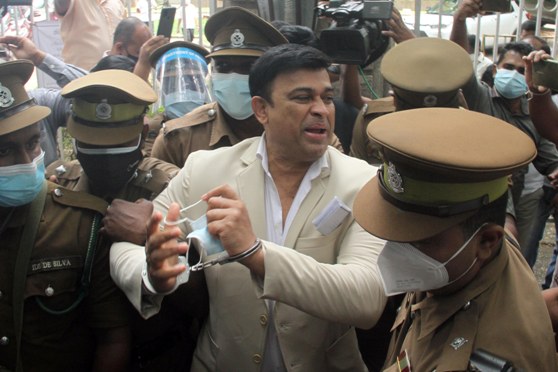COLOMBO – Sri Lanka’s main opposition Samagi Jana Balawegaya (SJB) has prepared legal documents required to secure a presidential pardon for MP Ranjan Ramanayake who is serving a four-year prison sentence.
SJB national organizer Tissa Attanayake told reporters on Monday (21), there were reasonable grounds for a presidential pardon for Ramanayake as he was imprisoned on charges of contempt of court rather than fraud or corruption.
Ramanayake had signed the documents seeking a presidential pardon in May, according to the MP.
“He doesn’t have a place to appeal and express himself. That’s why our parliamentary group decided to go for a pardon,” explained Attanayake.
The MP said the party hasn’t had the opportunity to present the papers to the presidential secretariat owing to the prevailing COVID-19 situation in the country.
“We’ll be able to send them to the president once the situation has been brought under control,” he said.
Opposition Leader Sajith Premadasa on April 20 requested President Gotabaya Rajapaksa to pardon the actor-turned-politician.
The Supreme Court sentenced the outspoken MP to four years’ rigorous imprisonment on January 12, 2021, over contempt of court charges, in connection with disparaging remarks he had allegedly made about the judiciary in August 2017.
Imprisonment over contempt of court charges is legal but is increasingly seen as inappropriate and disproportionate, according to Director, Edinburgh Centre for Constitutional Law, Dr. Asanga Welikala, who has said though the power to punish for contempt of court lies completely at the discretion of the court many countries have introduced legislation to regulate contempt of court powers.
“Such Acts balance the need to ensure respect for the judiciary with the freedom of expression and impose limits on punishments. Generally, imprisonment, rigorous or otherwise, is now regarded as an inappropriate and disproportionate form of punishment for contempt offences. A public apology should suffice,” he said on January 12.
As per Article 34 of the constitution, the president is vested with the power to grant a special presidential pardon to an individual convicted by the court.
-economynext.com


